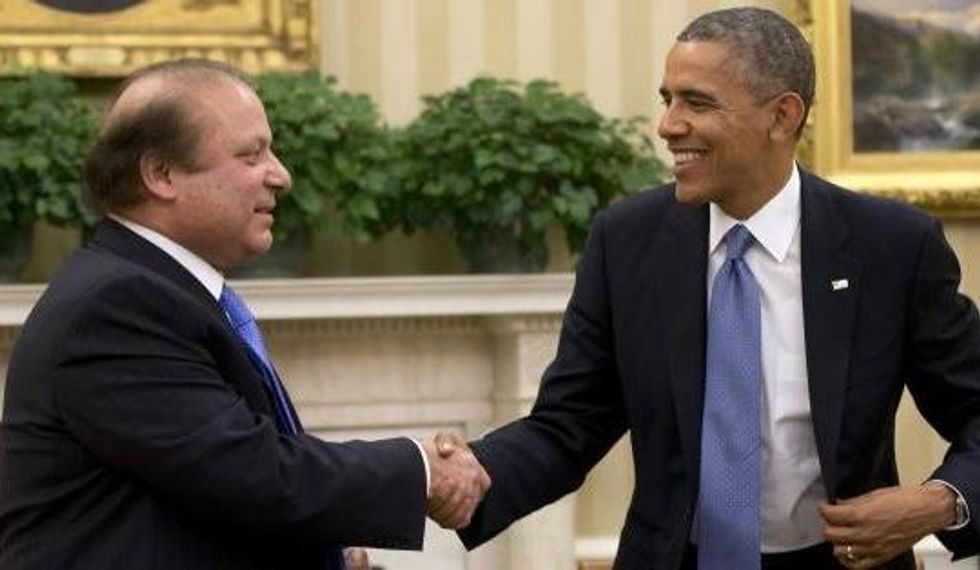Excellent timing for the CIA?
Though the newspaper acknowledges that "Pakistan's tacit approval of the [US] drone program has been one of the more poorly kept national security secrets" in the world, the Washington Post on Wednesday is reporting on leaked internal CIA documents it says shows the deep level of cooperation in recent years as both countries have played a game of high-level denialism about the role of armed, unpiloted aircraft in the sensitive tribal regions along the Afghan-Pakistan border.
According to the Post:
[...] the files expose the explicit nature of a secret arrangement struck between the two countries at a time when neither was willing to publicly acknowledge the existence of the drone program. The documents detailed at least 65 strikes in Pakistan and were described as "talking points" for CIA briefings, which occurred with such regularity that they became a matter of diplomatic routine. The documents are marked "top secret" but cleared for release to Pakistan.
The revelations come as Pakistan's Prime Minister Narwaz Sharif is in Washington and amid new public statements by he and other high-level officials voicing public condemnation of the continue drone attacks in their country.
Though not taken up by the Post, the timing of the leaked documents would suggest to suspicious minds--without knowing the source of the leaks--that one benefit of the disclosures (intentional or not) would be to lessen the impact of Sharif's public criticism of U.S. drones by calling into question the sincerity of his objections.
Among the information contained in the CIA memos, reports the Post, was the tracing of "the CIA's embrace of a controversial practice that came to be known as "signature strikes,"--broadly condemned by legal experts--in which the CIA approves targets "based on patterns of suspicious behavior detected from drone surveillance cameras and ordering strikes even when the identities" of those about to be assassinated could not be determined.
In reviewing those areas of the documents, the Post found much of the evidence "seemed circumstantial."
Additionally, the internal memos seem to show an unsubstantiated degree of confidence when it came to the CIA's assessment about the possible number of civilians killed in specific strikes. According to the Post:
Although often uncertain about the identities of its targets, the CIA expresses remarkable confidence in its accuracy, repeatedly ruling out the possibility that any civilians were killed.
One table estimates that as many as 152 "combatants" were killed and 26 were injured during the first six months of 2011. Lengthy columns with spaces to record civilian deaths or injuries contain nothing but zeroes.
Those assertions are at odds with research done by human rights organizations, including Amnesty International, which released a report this week based on investigations of nine drone strikes in Pakistan between May 2012 and July 2013. After interviewing survivors and assembling other evidence, the group concluded that at least 30 civilians had been killed in the attacks.
__________________________________

